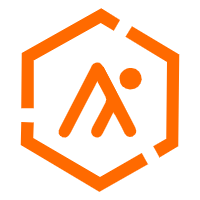SaaS platform vendors deploy application software on their own servers uniformly. Customers can order the required application software services from SaaS platform vendors through the Internet according to their actual needs. Customers pay SaaS platform vendors according to the number of services ordered and the length of time taken. Therefore, customers obtain the services provided by the Saas platform vendors through the Internet.
SaaS application software has three modes: free, paid, and value-added. The paid mode are usually "all-inclusive" fees., it covers the usual application software license fees, software maintenance fees, and technical support fees, and unified them as the monthly rental fee for each user.
SaaS is not only suitable for small and medium-sized enterprises, enterprises of all sizes can profit from SaaS.

SaaS is a completely innovative software application model that has emerged in the 21st century with the development of Internet technology and the maturity of application software. In the traditional model, vendors use licenses to deploy software products to multiple client terminals within the enterprise to achieve delivery,while SaaS defines a new delivery method. The essence of an enterprise deployment of informatization software is for its own operation and management services. SaaS has changed the way traditional software services are provided. It reduces the large amount of initial investment required for local deployment, and further highlights the service attributes of information software. It may become the mainstream delivery mode of the information software market in the future.
On the one hand, SaaS services provide services to users in the form of Internet browsers or WebServices/Web2.0 program connections, it makes SaaS applications with typical Internet technical characteristics; On the other hand, because SaaS greatly shortens the time and space distance between users and SaaS providers, the marketing and delivery of SaaS services are very different from traditional software.
SaaS provides services to hundreds of different customers (also known as tenants), usually based on a set of standard software systems. This requires SaaS services to support the isolation of data and configuration between different tenants, so as to ensure the security and privacy of each tenant's data, as well as the user's personalized needs such as interface, business logic, data structure, etc. Since SaaS supports multiple tenants at the same time, and each tenant has many users, this poses a big challenge to the performance, stability, and scalability of the infrastructure platform that supports the software. SaaS is an Internet-based software delivery model, and optimizing the performance and operating costs of large-scale software applications is the core task of architects.
SaaS is used by customers in a form of service that enables software to be carried on the Internet. Therefore, many issues must be considered, such as the signing of service contracts, the measurement of service usage, the guarantee of online service quality, and the collection of service fees, while these problems are usually not considered by traditional software.
The scalability of SaaS means maximizing the concurrency of the system and use system resources more efficiently. For example: optimizing the persistence of resource locks, using stateless processes, using resource pools to share key resources such as lines and database connections, caching reference data, and partitioning large databases.
Enterprises today face many challenges in the construction and operation of data technology platforms during digital transformation. The multi-functionality and service-oriented evolution of modern data warehouses makes it possible to solve these challenges. As a data warehouse product in the Apsara Big Data Platform of Alibaba Cloud, MaxCompute has been widely used and trusted by Alibaba and other customers.
This article describes the core capabilities and advantages of Alibaba Cloud MaxCompute. As a unified analysis-oriented data platform, MaxCompute provides enterprises with key business values such as business agility and lower total cost of ownership (TCO) in typical big data analysis platform scenarios. The following content is based on the video of a speech by Qu Ning, Intelligent Product Expert at Alibaba Cloud, and quotes materials from the related PowerPoint slides.
A data warehouse is theme-oriented, integrated, stable, and time-varying. It is used to support management decision-making. A data warehouse collects all of the enterprise data and provides a centralized and standard data outlet for all enterprise departments.
A data warehouse (model) is a methodology of best practices for manual data collection, storage, understanding, organization, management, and decision-making. The model is not affected by where it is used or what technology it uses. However, the logical model and the physical model are integrated closely into the final solution. Therefore, we need the business and technical capabilities provided by data warehouses.
Alibaba Cloud SaaS Accelerator helps Alibaba Cloud ecosystem partners and customers build and launch SaaS applications efficiently. It enables ecosystem partners, such as enterprises in the e-commerce, hospitality, and travel industries, to quickly reach their customers on Alibaba platforms. It defines three centers for the SaaS ecosystem: commercial center, capability center, and technology center. This solution enables Alibaba Cloud to be integrated more efficiently and helps customers develop businesses, adopt technologies, and increase capabilities.

2,593 posts | 793 followers
FollowIain Ferguson - March 10, 2022
Alibaba Cloud Native - February 22, 2023
Alibaba Cloud Community - January 7, 2022
Alibaba Cloud Community - December 3, 2021
Alibaba Clouder - July 26, 2019
Alibaba Clouder - July 23, 2019

2,593 posts | 793 followers
Follow Intelligent Advisor
Intelligent Advisor
An intelligent tool that can be used to perform quick inspections on your cloud resources and application architecture to detect underlying risks and provide solutions.
Learn MoreMore Posts by Alibaba Clouder